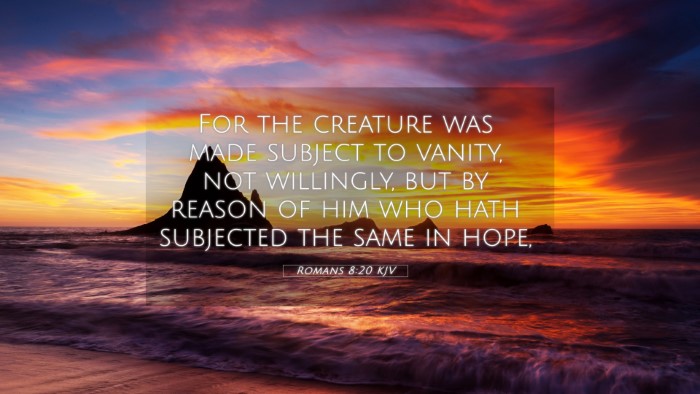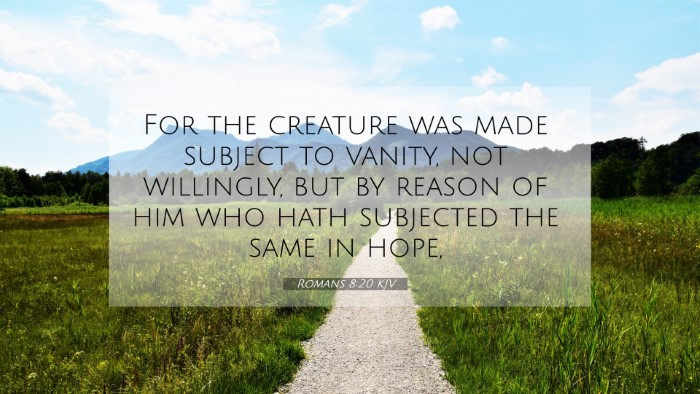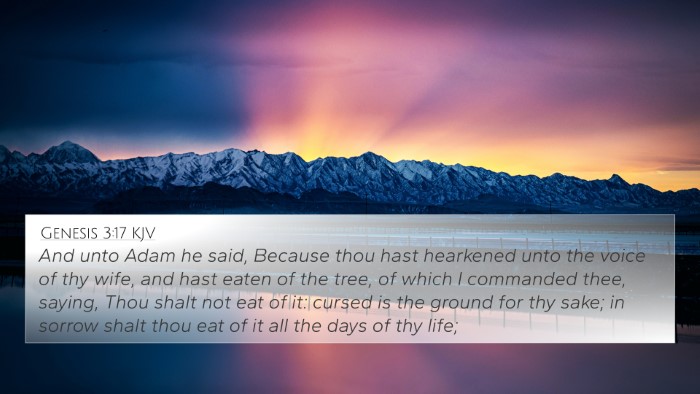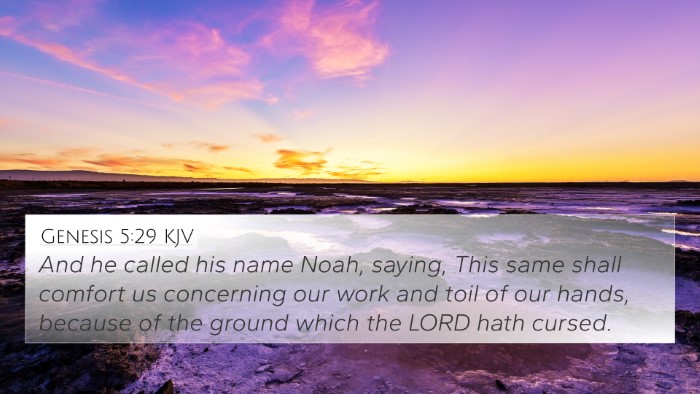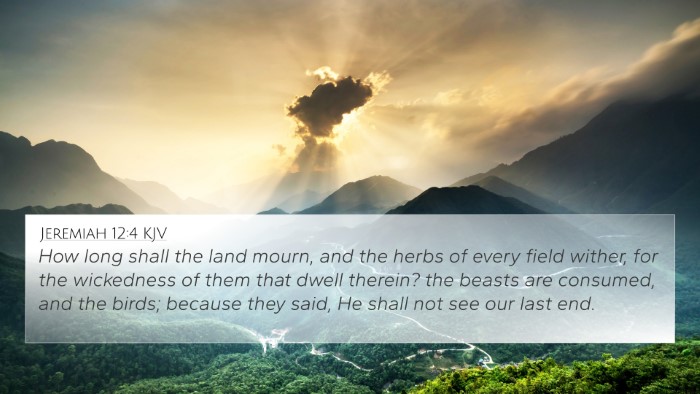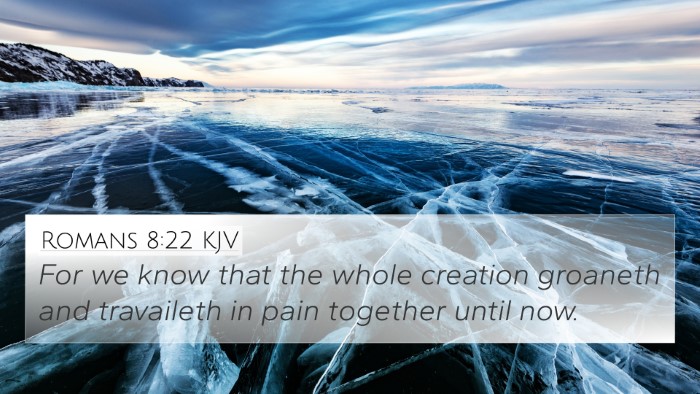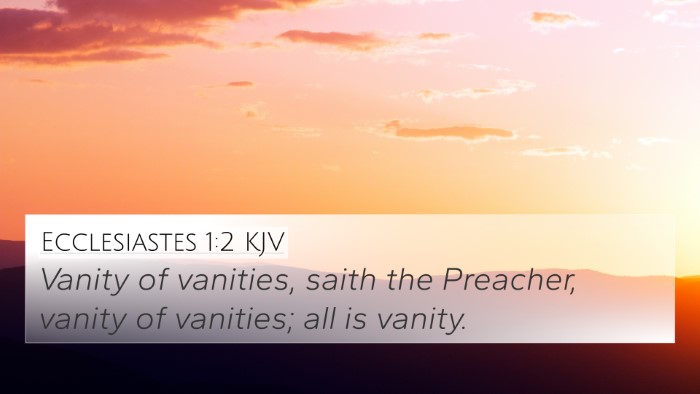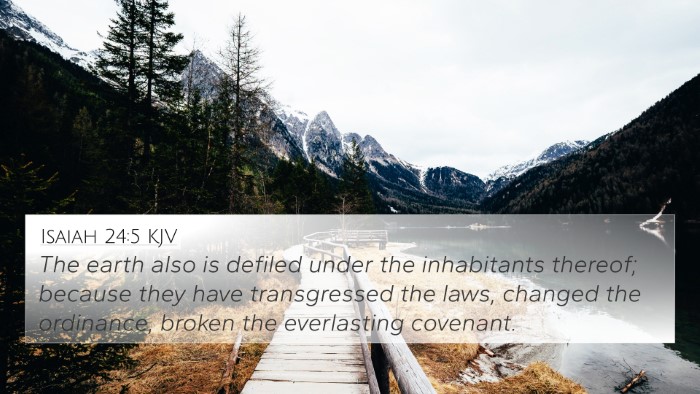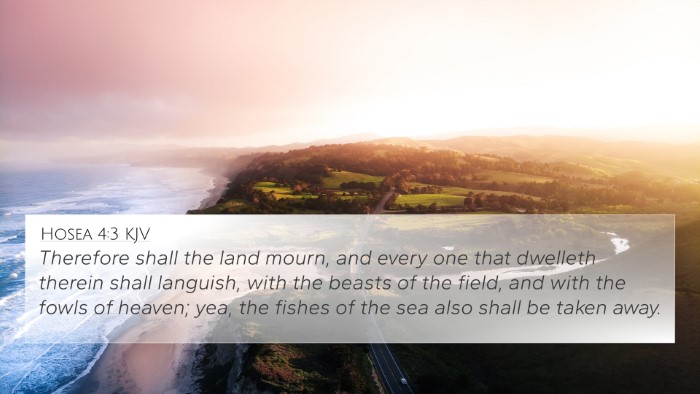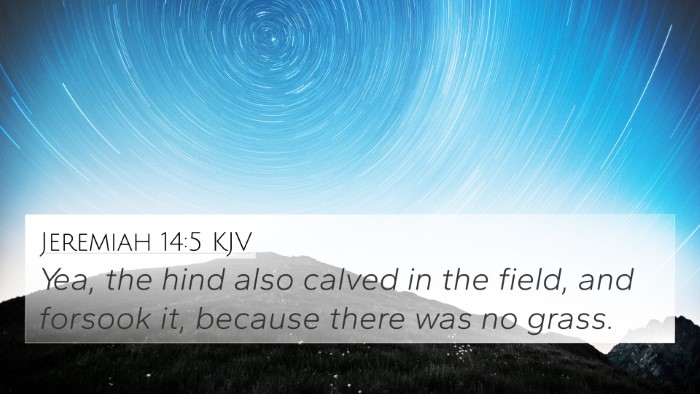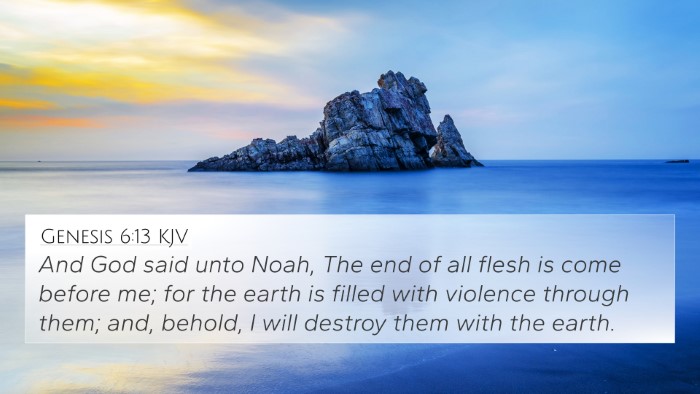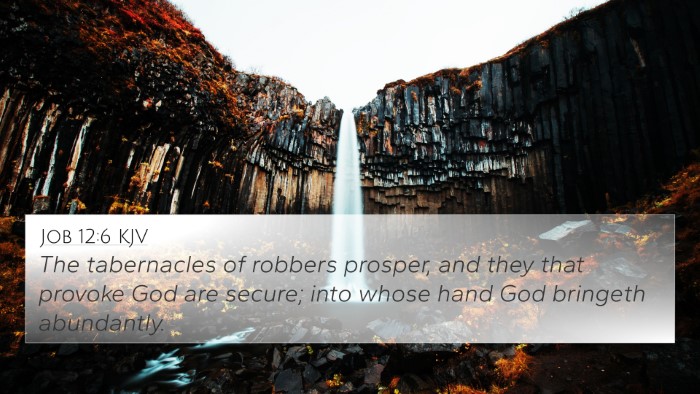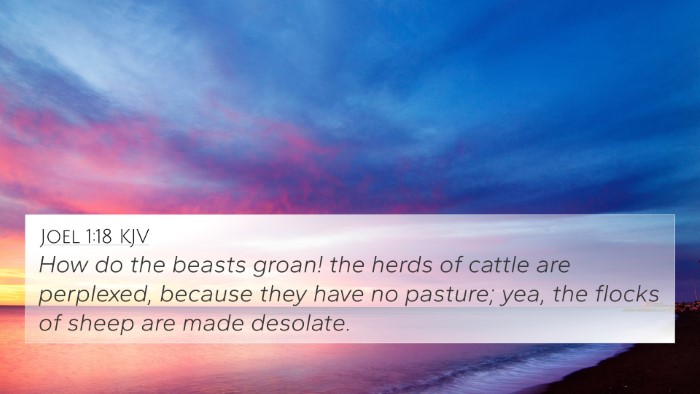Understanding Romans 8:20
Romans 8:20 states: "For the creature was made subject to vanity, not willingly, but by reason of him who hath subjected the same in hope." This verse encapsulates profound theological insights related to the state of creation and the hope of redemption.
Verse Meaning and Context
According to Matthew Henry, this verse reflects on the futility of the created order, which was subjected to vanity through Adam's sin. The whole creation groans and labors under the burden of sin, leading to a loss of its original glory. However, this subjection is not without purpose; it is grounded in the hope of future restoration. Henry emphasizes that while creation suffers, it remains hopeful for a transformative future through God's plan.
Albert Barnes' commentary echoes this sentiment, explaining that the 'creature' here refers to all of creation, which has been subjected to frustration or futility as a result of mankind's sin. This verse serves to highlight God's sovereign plan, whereby even the suffering of the world anticipates a glorious outcome. Barnes points out that creation’s temporary state of decay is integral to God’s redemptive narrative.
Adam Clarke expands on the nature of 'vanity' or 'futility,' noting that it signifies a lack of real value or purpose as a result of sin's entrance into the world. Clarke elaborates that this suffering is not involuntary; it is part of a divine scheme, aimed at eventual restoration. The hope mentioned in the verse underlines God's promise that creation will ultimately be liberated from its bondage to decay.
Theological Implications
This verse is essential for understanding the overarching themes of sin and redemption in Scripture. It insists that while creation currently endures the effects of sin, it does so with the assurance of future restoration—a cornerstone of Christian eschatology.
Cross-References
To deepen your understanding of Romans 8:20, consider the following Bible cross-references:
- Genesis 3:17-19 - The curse on creation due to Adam's sin.
- Ecclesiastes 1:2 - The theme of vanity in creation.
- Isaiah 24:5 - The earth is defiled by its inhabitants.
- Romans 8:21 - The hope of freedom from decay.
- Colossians 1:20 - Reconciliation through Christ.
- 2 Peter 3:13 - The promise of new heavens and a new earth.
- Revelation 21:1 - The creation of all things new.
Connecting Themes
The interconnectedness seen in Romans 8:20 through various Bible verses that relate to each other serves to highlight a biblical narrative that revolves around hope amidst suffering. Understanding these connections provides a richer context for the believer’s journey and encourages deeper study through comprehensive Bible cross-reference materials.
Comparative Analysis
This verse and its related biblical texts also invite comparative analysis of Pauline epistles, particularly the way they address the struggle between sin and the promise of redemption. Exploring the potential links between Old and New Testament scriptures can illuminate the persistent theme of hope that characterizes the faithful response to suffering.
Tools for Bible Cross-Referencing
Utilizing a Bible concordance or a Bible cross-reference guide can enhance your study experience, providing insights into how to use Bible cross-references effectively. By engaging in cross-referencing Bible study methods, you can cultivate a more profound understanding of interconnected themes and messages across scripture.
Conclusion
Ultimately, Romans 8:20 not only portrays the current state of creation but also serves as a beacon of hope for believers. The assurance of future glory—woven into the fabric of biblical truth—encourages followers of Christ to engage in inter-Biblical dialogue that reveals the seamless narrative of redemption woven throughout the texts.

